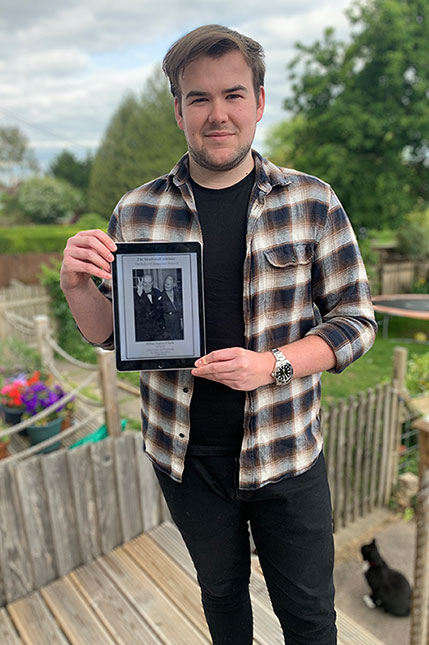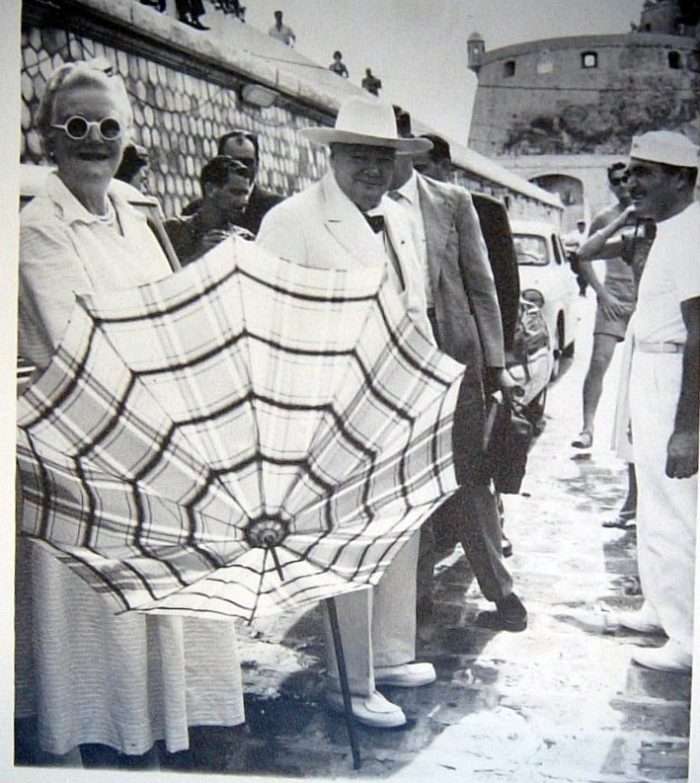The Jennie Churchill Fund
Elliot James Clark
Going to the Churchill Archives Centre opened up what one can only describe as an ‘Aladdin’s Cave’ of resources and documents. For my undergraduate dissertation, I worked to produce a study which would analyse how vital Clementine Churchill’s role was in supporting Winston Churchill’s political career and what implications this commitment had on the couple’s marriage. This became titled ‘The Shadowed Advisor: The Role of Clementine Churchill’. In December 2019, I received the support of the Jennie Churchill Fund to facilitate a trip to the Churchill Archives Centre in an attempt to uncover material which would support my thesis. For a young researcher, the Jennie Churchill Fund gave me the opportunity to produce a study of a figure who I believe has been widely underappreciated for her work; and role in forging the future of British history in aiding the career of her husband. By gaining access to the sources at the Churchill Archives Centre, I was able to bring light to Clementine’s significance.

Elliot Clark with a copy of his dissertation.
I’ve been asked on many occasions what sparked my interest in studying the life of the Churchill family and I always refer to the story of my first trip, in 2018, to Chartwell, the family home of the Churchills. On this visit to the Kent Country home, there was a wonderfully displayed exhibition of Clementine Churchill, this led to me questioning her role, passion and dedication in supporting Churchill’s career and how the couple worked tirelessly to achieve so much. This visit led to my analysis on the life and role of Clementine Churchill.
In February 2020, I headed to the Churchill Archives Centre, with the support of the Jennie Churchill fund, to begin my research, analysing a variety of letters, diaries, telegrams, newspaper reports and photographs. Over my two frantic research days at the archives, I worked closely with the Archives Director, Allen Packwood and the archive team searching through the papers of Clementine Churchill, identifying collections and gathering information to facilitate my study. During my short time at the Archives Centre, I read and analysed over one hundred and fifty documents producing seventy-five pages of analysed notes to interpret when writing up my dissertation. While trying to fit the research into such a short time frame I found myself being pulled in by the papers wanting to read each document one by one, but alas the time would not allow it. This research had proved vital to the success of my dissertation with the sources I used allowing a new insight into the role of Clementine Churchill. The success of this was thanks to the support of the Jennie Churchill Fund.
One collection which shone the most for me during my visit contained the letters of Anthony Montague-Browne to Churchill’s Constituency Manager Doris Moss. These highlighted how Clementine was able to indirectly influence Churchill’s career while also protecting her marriage. In these letters, we see Anthony Montague-Browne request to Doris Moss that she tell Churchill that now (1963) is the time for him to step down as MP for Woodford and allow the Constituency time to find a suitable replacement before the next election. Clementine’s concern was that if she discussed this with Churchill herself he would “resent this bitterly.” [CA Letter from Montague-Browne to Moss, WCHL-16/1/3, (March 18th, 1963)]. This insight into Clementine’s actions illustrated to me that she possessed a skill and power to be able to manipulate Churchill’s decision-making with her doing so to protect not only Winston’s health, but her marriage. This was a collection highlighted to me by Allen as one not used or analysed by historians in detail before. I was amazed to have access to a resource like this and it allowed me to study a part of Clementine’s role which has been widely overlooked by other historians.

Clementine with Churchill in Monte Carlo, 1960. Reference: Clementine Churchill Papers, CSCT 5/8/171
My time spent in the Churchill Archives Centre searching through a vast variety of sources led to me asking many more questions surrounding Churchill’s private life and the relationships he held with his family. This has resulted in the production of my current project. With this project, I aim to develop from my previous study to analyse Churchill’s relationship with his children, the expectations he had for them and the impact this had on the relationship. By going to the Churchill Archives Centre with the support of the Jennie Churchill Fund, it illustrated to me, through the sources available, that there is still much we do not know of Churchill’s private life and I believe it is vital to understand these areas to hold a complete understanding of Churchill’s role in British history. To achieve this, the project will analyse the impact of Churchill’s childhood, and his relations with his own parents, on his relationship with his children, and how he longed to have a close bond with them, unlike the one like he had with his own father. In analysing this image of fatherhood, the project will reveal the impact of a political career and how it strained these relationships. The current focus of this project has been on the papers of Mary Soames, the youngest daughter of the Churchills, examining her wartime diaries to understand her perception of the war and how she joined the Auxiliary Territorial Service to support her father and her country in its hour of need.
The support I received from the Jennie Churchill Fund not only gave me access to the resources at the Churchill Archives Centre, but also resulted in me having the opportunity to meet and work with some of the leading experts in the field. It introduced me to the International Churchill Society and gave me the chance to develop my understanding of the wider field illustrating new methodologies and outlooks of historical study. The fund had a greater impact on my work than I could ever have imagined with it leading to a variety of opportunities to enhance my academic career.
I look forward to working closely with Allen and the team at the Churchill Archives Centre over the next few years to finish the production of this project and I’m eternally grateful for the support they and the Jennie Churchill Fund have given me. I look forward to returning to the Archives soon.
